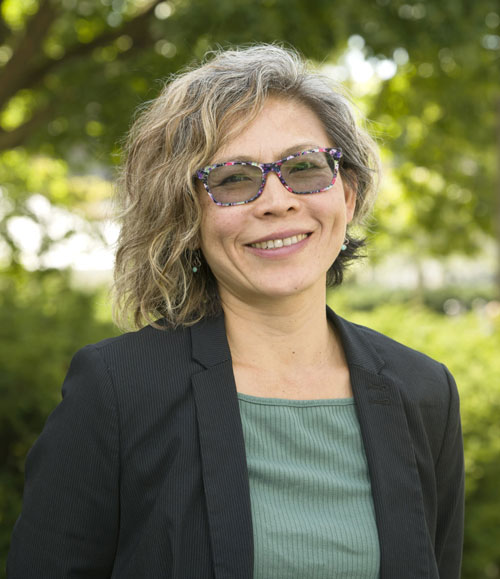Wisa Wisesjindawat-Fink

Areas of study
Geospatial technologies, Participatory mapping, participatory GIS, GIS applications for environmental monitoring (land use/land cover changes)Research interests and topics
Water governance, public policy, knowledge co-production, mixed-method research, participatory approachBiography
Dr. Wisesjindawat-Fink, who holds a Ph.D. in Environmental Geography from the National University of Singapore, is an inspiring environmental geographer making a significant impact in her field. Before joining the Department of Geography, she served as a postdoctoral research fellow for the Mekong Culture WELL project, a remarkable $1 million initiative dedicated to exploring the rich ecological, social, and cultural transformations happening in the Lower Mekong region through an interdisciplinary lens at James Madison College, MSU.
Raised in the vibrant city of Bangkok, Thailand, she has embraced her passion for travel and discovery throughout her career. She is driven by a deep desire to transform scientific knowledge into actionable solutions, especially regarding the complex interactions between humans and their environments. Her work focuses on enhancing livelihoods and shaping policies through participatory approaches and cutting-edge GIS techniques, both in the Mekong Region and the United States.
With over 20 years of experience, she has built a wealth of specialized knowledge in freshwater ecology. She has been instrumental in bridging the gap between local fishers and scientific research, promoting ecological understanding while developing innovative databases and survey techniques. Her journey includes collaborations with prestigious international organizations such as the United Nations, the Mekong River Commission (MRC), WWF-Laos, and the Nature Conservancy in Michigan.
She adeptly utilized Landsat ETM imagery to manage wetlands and assess changes in land use in the Lower Mekong Region, while also pushing for headwater conservation efforts. Notably, she led the initiative to map unexploded ordnance (UXO) at the globally significant Plain of Jars site in Laos that was dropped during the Indochina and secret wars in Laos. This effort helped promote ecotourism and contributed to the country's application for UNESCO World Heritage status. In Michigan, her work involved enhancing soil health for wetland management, monitoring groundwater temperatures in the Fens ecosystem, and collaborating on sustainable fishery management for the Great Lakes.
Her commitment to human security and sustainable development is evident in her diverse projects, which range from educational planning and cultural landscape mapping to addressing issues such as statelessness among ethnic and indigenous communities in Thailand. Currently, she is honored to serve as an invited lead researcher for UNESCO-Bangkok. She is passionately involved in developing environmental monitoring strategies to support the management of the Luang Prabang World Heritage site in Laos. With her unwavering dedication to empowering marginalized communities affected by hydropower developments along the Mekong River, she continues to advocate for sustainable practices that benefit both people and the environment. (see https://www.bangkokpost.com/life/social-and-lifestyle/2744464/the-day-dams-silenced-luang-prabang).

